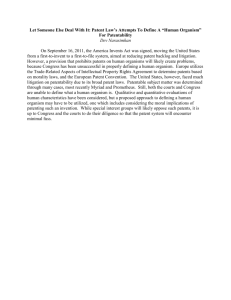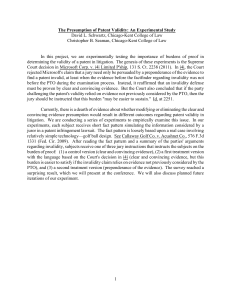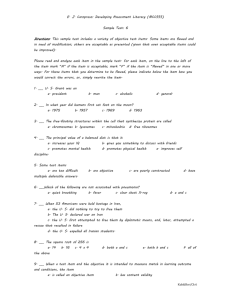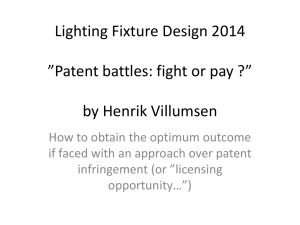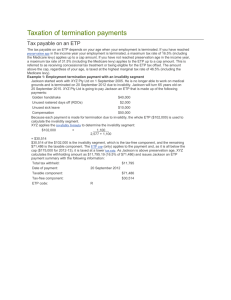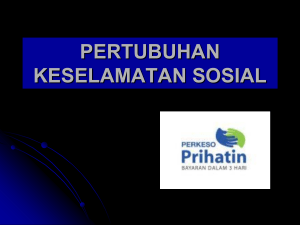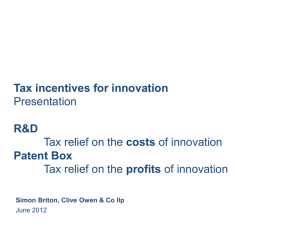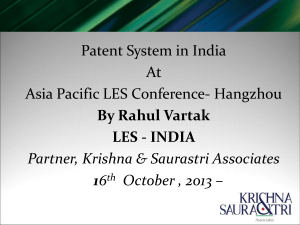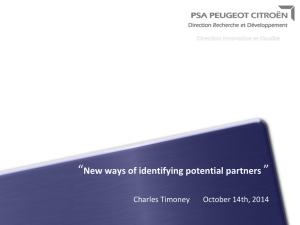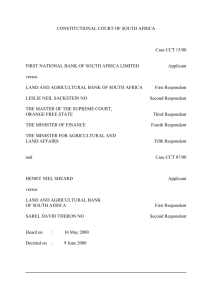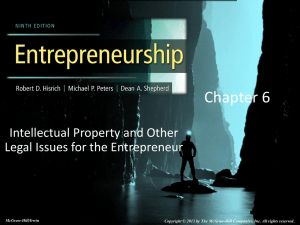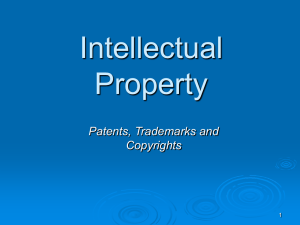Brendan Sever, Semiconductor & Electronics Group Leader, Global
advertisement
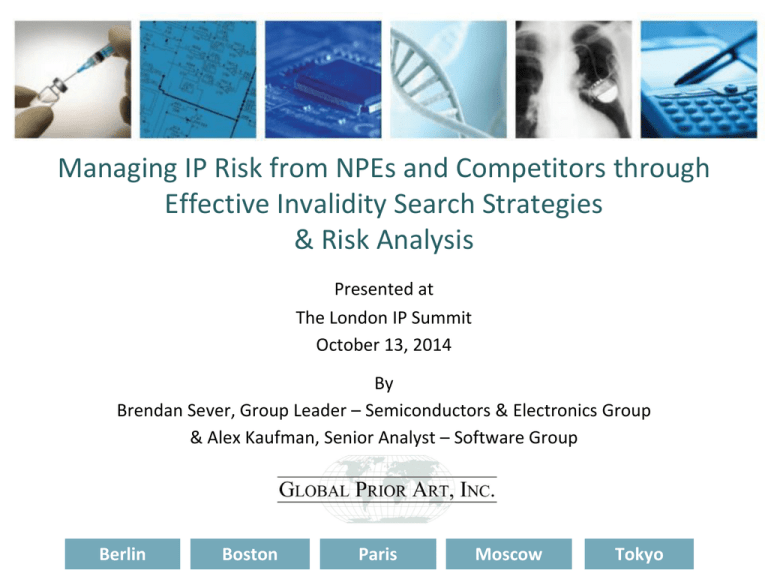
Managing IP Risk from NPEs and Competitors through Effective Invalidity Search Strategies & Risk Analysis Presented at The London IP Summit October 13, 2014 By Brendan Sever, Group Leader – Semiconductors & Electronics Group & Alex Kaufman, Senior Analyst – Software Group Berlin Boston Paris Moscow Tokyo Introduction to Global Prior Art, Inc. The People of Global Prior Art Celebrating over 30 Years of Leadership Telecom Semiconductors & Electronics Chemistry Materials Mechanical Software & Business Methods Medical Devices Biotechnology Brief Introduction to Global Prior Art GPA’s Distinguishing Features: A Demonstrated Record of Success – Over 30 years in the business supporting in-house counsel and law firms with high stakes matters Full-time Staff who are Technical Experts Trained in IP Searching in the Original Language – Full-text, not machine translation Extensive Manual Review In-House Library – Trade publications, data-books, product guides, conferences, journals, games, not available online collected over past 30 years Global’s Worldwide Capabilities Japan (JP) Russia (RU, SU) United States (US) Europe* * includes EP’s and local patents What Makes an Effective Invalidity Search A Good Search, How Long? Q: Can you conduct an invalidity search in 24 hours? A: No. The limited coverage represents that of a patentability search. Packaging the findings with a fancy report does not change this reality. Q: Can an invalidity search be carried out in 5 days? A: No. The depth of study is still limited. It is still only enough time to search foreign art with keyword strings applied to English abstracts and is insufficient to cover all relevant NPL sources. Lots of shortcuts must still be taken. Where To Look for Invalidating Prior Art Patents from multiple regions (USPTO is critical, but so are others such as EPO, JPO, and others) Native-language non-patent literature from key countries Product documentation and release announcements Reference books and research reports Dissertations/technical papers from universities researching the technology Literature Coverage Specialized technical literature includes circuit data books and data sheets published by key semiconductor companies. In addition, technical manuals, conference proceedings, circuit Representative Data books: encyclopedias and product manuals Dallas Semiconductor are often important. Elantec, Exar, Fairchild, Fujitsu, General Electric, Maxim Semiconductor, GTE, Harris, Hitachi, Intel, TI, Motorola… Japanese Products Key Finding: “Beat Planet Music” - video game sold in Japan for the Japanese Playstation gaming console German Patents Target Patent: A vehicular seat-load sensor Key Finding: German Industrial Design Target Patent: Modular Lighted Tree Key Finding: The Factors Behind A Flawed Search The Most Common Reasons for A Flawed Search Common Reason 1. Limited Expertise of Searcher ➢ ➢ Searcher did not understand the technology Failed to identify key references as relevant Recommendation: Confirm expertise of search team. If searcher requests keywords – Run. Run fast. Common Reason 2. Flawed Coverage ➢ ➢ Did not cover correct sources. Did not identify most critical countries. Recommendation: A competent search identifies the critical sources at the start; the search process is transparent. The Most Common Reasons for A Flawed Search Common Reason 3. Flawed Execution ➢ ➢ ➢ ➢ Failure to understand limitations in databases used Flawed coverage of foreign art (review English abstracts rather than full text foreign documents) Cover readily available literature vs. most relevant literature Patents with non-standard terminology not covered Common Reason 4. Inadequate Budget ➢ Budget is inconsistent with search requirements; Frequently the result is a “patentability search” dressed up as an invalidity search. A cheap search now will cost you more later. Solution: Review search plan for warning flags. The Risk You Run Assigning Risk and Exposure to IP Strategies Source: PWC 2012 Patent Litigation Study, Page 12 Assigning Risk and Exposure to IP Strategies Median Damages Awarded by Industry for NPE and Practicing Entities (in MM) Source: PWC 2012 Patent Litigation Study, Page 16 Conclusions ➢ In high stakes litigation, an effective invalidity search can dramatically change the outcome and save millions in damages ➢ There are no shortcuts to effectively locating prior art ➢ Different search approaches have widely divergent success rates ➢ Many firms are tripped up by relying on searches carried out in a manner that maps to a patentability or Accelerated Exam search ➢ Transparency – It is critical to understand the background of the searchers performing the work and how the search is carried out, since this has such a huge impact on a successful outcome ➢ A risk and value analysis confirms it is always cheaper to do it right the first time.
